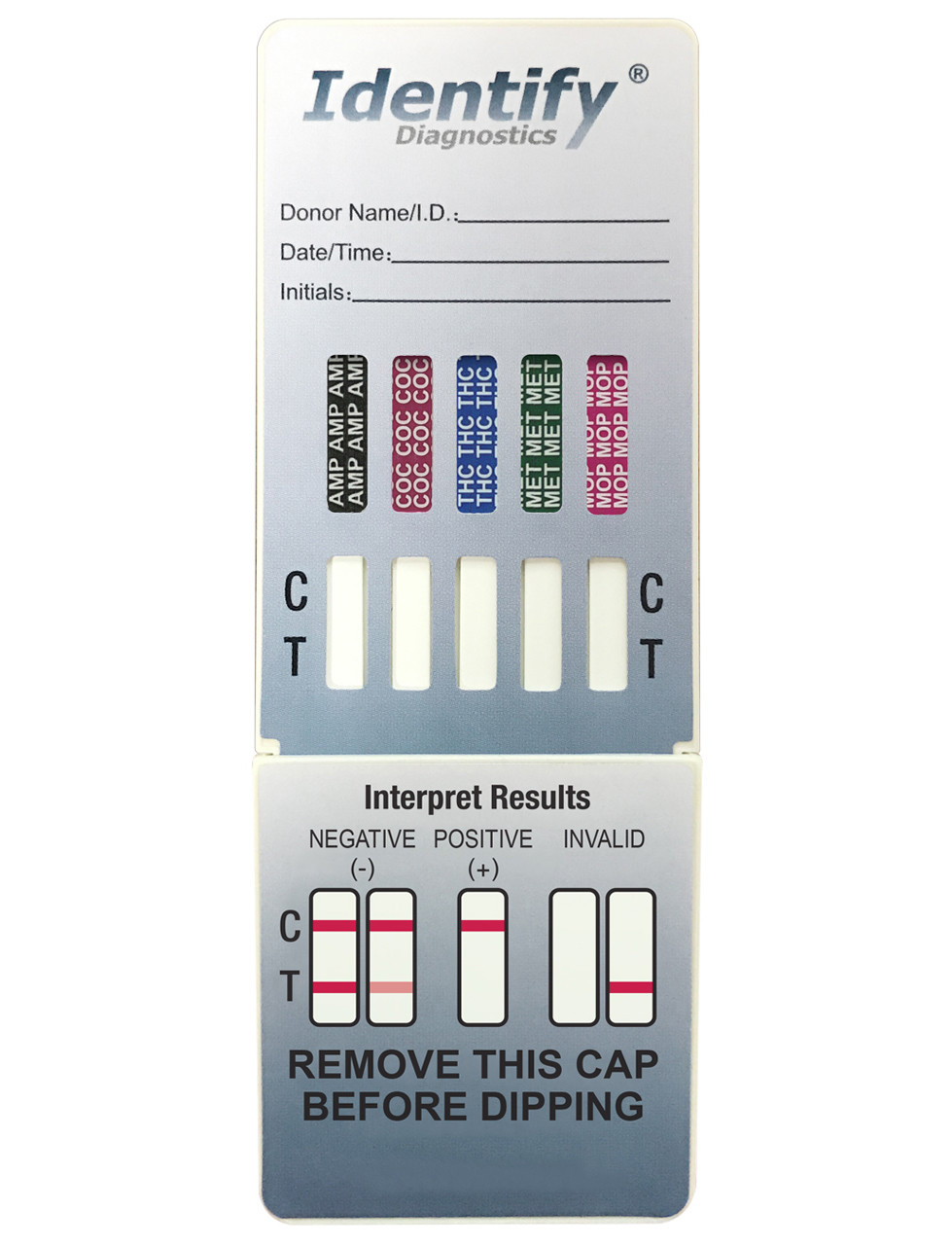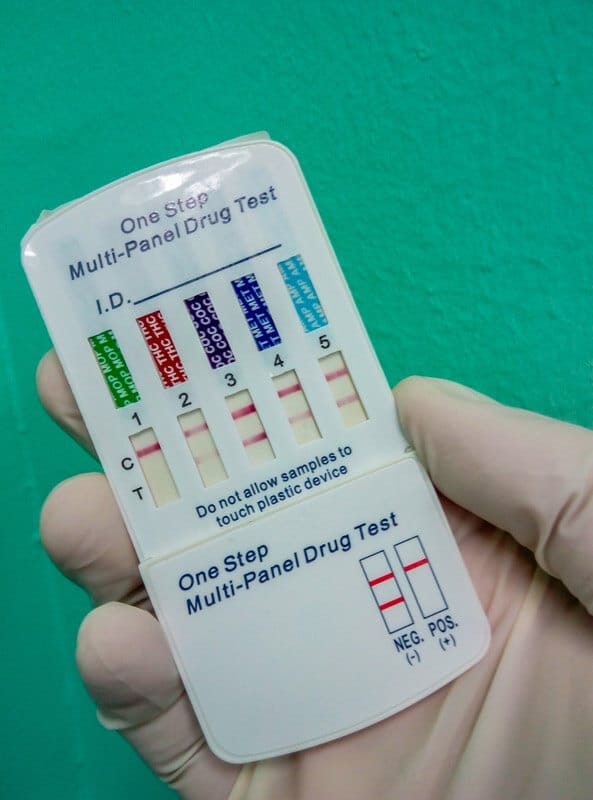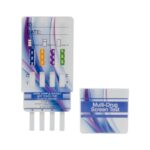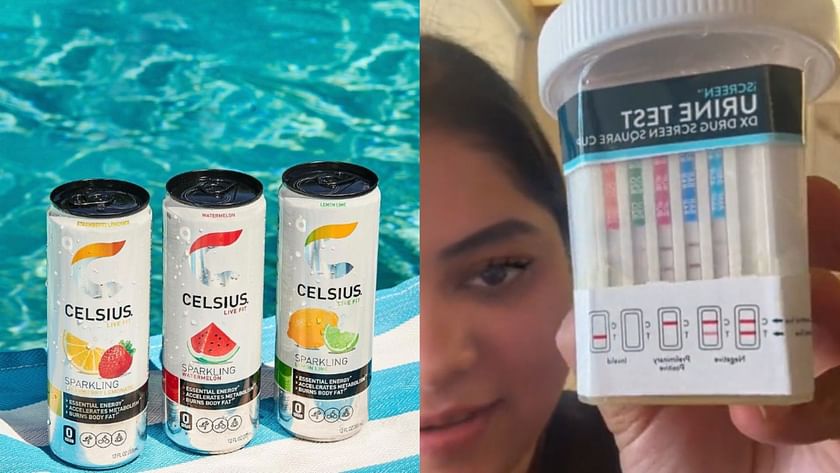A 5 panel drug test screens for the presence of five specific drugs or classes of drugs. It is commonly used by employers, law enforcement, and healthcare providers to detect substance abuse.
The test typically includes screening for marijuana, cocaine, amphetamines, opiates, and PCP. 5 panel drug testing provides a quick and effective way to determine whether an individual has used these specific substances within a certain timeframe. The information obtained from the test can help organizations make informed decisions when hiring employees, monitoring drug rehabilitation programs, or ensuring the safety of individuals in custody.
Understanding the purpose and process of a 5 panel drug test is essential for anyone involved in drug testing or substance abuse prevention.

Varieties Of Drug Testing Methods
When it comes to ensuring workplace safety and maintaining a drug-free environment, employers often utilize various drug testing methods to screen their employees. There are several varieties of drug testing methods, each with its own advantages and limitations. Understanding the different options available can help employers make informed decisions about the most appropriate testing method for their specific needs.
Hair Follicle Analysis
Hair follicle analysis is a type of drug testing that involves analyzing a small sample of hair to detect the presence of drugs. This method is known for its long detection window, as it can identify drug use from several months prior. It is a popular choice for pre-employment screening and random drug testing due to its accuracy and reliability.
Urine Sample Testing
Urine sample testing is one of the most commonly used methods of drug testing. It is a non-invasive and cost-effective option that provides quick results. Urine tests can detect a wide range of drugs and are suitable for a variety of testing purposes, including pre-employment, post-accident, and random testing.
Blood Tests Comparison
Blood tests are highly accurate and are often used in situations where immediate drug use needs to be confirmed, such as post-accident or reasonable suspicion testing. While blood tests offer precise results, they have a shorter detection window compared to urine or hair follicle testing.
Saliva Testing Nuances
Saliva testing is gaining popularity due to its non-invasive nature and the ease of sample collection. This method is particularly useful for detecting recent drug use, typically within the past 24-48 hours. Saliva tests are often used for post-accident and reasonable suspicion screenings.
Inside 5 Panel Drug Test Mechanics
Substances Commonly Detected
The 5 Panel Drug Test typically screens for the presence of marijuana, cocaine, amphetamines, opiates, and phencyclidine (PCP). These substances are selected based on their prevalence in drug abuse and their potential risks to safety in various environments.
Active Detection Windows
The detection windows for these substances can vary based on several factors, including the individual’s metabolism, frequency of use, and the drug’s half-life. However, the typical detection periods can range from a few days to a few weeks.
Methodology Behind Urine Sampling
Urine sampling is the most common method used for the 5 Panel Drug Test. During the test, a specimen cup is provided for the individual to provide a urine sample. The sample is then analyzed for the presence of the targeted substances using advanced immunoassay techniques.
False Positives And Confirmatory Tests
Although rare, false positives can occur due to factors such as cross-reactions with certain medications or foods. To confirm a positive result, a gas chromatography-mass spectrometry (GC-MS) test is used. This secondary test provides a more precise analysis, ensuring the accuracy of the results.
Workplace Screening Strategies
Pre-employment Drug Testing
Pre-employment drug testing is a critical component of workplace screening strategies. It serves as an initial filter to ensure that prospective employees are free from illicit substance use and can contribute to a safe and productive work environment. By implementing pre-employment drug testing, organizations can mitigate the risks associated with substance abuse in the workplace, increase productivity, and maintain a safer environment for all employees.
Random Testing In Workplace
Random testing in the workplace is an effective strategy to deter employees from engaging in substance abuse. Conducting periodic random drug tests can help identify individuals who may be struggling with addiction or misuse of drugs, and prompt early intervention. This proactive approach not only promotes a drug-free work culture but also safeguards the well-being and safety of employees.
Post-accident Implications
Post-accident drug testing holds significant implications for workplace safety and liability. Following workplace accidents or incidents, conducting drug tests becomes crucial in determining if substance abuse played a role. This practice ensures that organizations adhere to legal requirements, aids in identifying potential risks, and contributes to creating a secure work environment.

Legal And Ethical Considerations
When conducting a 5 Panel Drug Test, it’s crucial to consider the legal and ethical implications that come with the process. As an employer, it’s essential to maintain a balance between ensuring workplace safety and respecting employees’ rights. Let’s delve into some of the legal and ethical considerations that are associated with conducting a 5 Panel Drug Test.
Employee’s Privacy Rights
Employee privacy rights are of paramount importance when implementing a 5 Panel Drug Test. Employers must ensure that any drug testing processes adhere to laws and regulations regarding privacy. It’s crucial to emphasize the significance of obtaining explicit consent from employees before subjecting them to drug testing. Additionally, employers should uphold confidentiality and handle test results with the utmost discretion to safeguard employees’ privacy.
Potential Discrimination Issues
When implementing a 5 Panel Drug Test, there is a need to be wary of potential discrimination issues. Employers must ensure that the drug testing process does not lead to any form of discrimination or bias against employees. It’s essential to establish clear and consistent procedures for drug testing to avoid any discriminatory practices that could arise from the process.
Regulatory Compliance Across Sectors
Regulatory compliance across sectors is a crucial aspect that employers must consider when conducting 5 Panel Drug Tests. Different industries and sectors may have specific regulations and requirements related to drug testing. Therefore, it’s imperative for employers to stay informed about the legal framework in their particular sector and ensure compliance with all relevant regulations and standards.
Steps After Initial Positive
After receiving an initial positive result in a 5 panel drug test, several steps need to be taken to validate the result and determine the next course of action. It is crucial to follow the appropriate procedures to ensure fairness and accuracy in the process.
Confirmation Testing Process
Confirmation testing is vital to verify the initial positive result. This process entails conducting a more thorough and precise analysis of the sample using advanced laboratory techniques such as gas chromatography/mass spectrometry (GC/MS). This comprehensive examination helps to confirm the presence of specific illicit substances, reducing the likelihood of false positives and ensuring the accuracy of the test results.
Substance Abuse Professional Consultation
Seeking substance abuse professional (SAP) consultation is crucial for individuals who receive a positive result. An SAP can provide guidance and support, helping the individual understand the implications of the positive test and offering assistance in addressing potential substance abuse issues. Their expertise can be invaluable in navigating through the process and exploring appropriate treatment options.
Legal Recourse For False Positives
Experiencing a false positive can be distressing. Legal recourse may be pursued in instances where a false positive result has serious repercussions. Individuals have the right to challenge an inaccurate test outcome and seek legal representation to address any unwarranted consequences. Legal experts can provide guidance on how to dispute the test results and take appropriate action, ensuring fair treatment and protecting individual rights.
Ensuring Test Integrity
Ensuring the integrity of a 5-panel drug test is crucial for obtaining accurate and reliable results. Employers and organizations rely on these tests to make informed decisions about potential employees or current staff, making it essential that the testing process is secure and trustworthy.
Chain Of Custody In Testing
The chain of custody in drug testing refers to the strict documentation and handling of specimens from the moment they are collected until the final results are reported. This process involves documenting the transfer of the specimen from one person to another, ensuring that it remains secure and uncontaminated.
Testing Facility Certifications
When selecting a testing facility for a 5-panel drug test, it’s crucial to consider their certifications and accreditations. Look for facilities that have been certified by reputable organizations, such as the Substance Abuse and Mental Health Services Administration (SAMHSA) or the College of American Pathologists (CAP). These certifications indicate that the facility follows specific quality standards and complies with regulations.
Preventing Sample Tampering
Preventing sample tampering is fundamental in maintaining the integrity of a 5-panel drug test. Facilities should implement strict protocols to prevent tampering, such as using tamper-evident specimen containers and conducting thorough specimen identification checks. This ensures that the samples remain untainted and the results are accurate.
Frequently Asked Questions For 5 Panel Drug Test
What Is A 5 Panel Drug Test?
A 5 panel drug test is a standard procedure for screening five common illegal substances: marijuana, cocaine, amphetamines, opiates, and PCP. It’s often used by employers to ensure a drug-free workplace and during legal proceedings.
How Accurate Is A 5 Panel Drug Test?
A 5 panel drug test is highly accurate, with a low chance of false positive results. However, it may not detect all types of drugs. It’s crucial to follow proper protocols to ensure accurate results and consider confirmatory testing if needed.
How Long Do Drugs Stay In Your System For A 5 Panel Drug Test?
The detection window for drugs in a 5 panel drug test depends on various factors such as the type of drug, frequency of use, and metabolism. Generally, drugs can be detected in urine for 2-4 days, but this can vary.
Can Prescription Drugs Affect A 5 Panel Drug Test?
Prescription drugs can sometimes yield positive results in a 5 panel drug test if they are similar to illicit substances. It’s essential to disclose all current medications before the test to avoid potential misunderstandings and false positives.
Conclusion
A 5-panel drug test is a crucial tool for ensuring workplace safety and compliance. By screening for common substances, it helps employers make informed hiring decisions. Understanding its role in maintaining a drug-free environment is essential for businesses and employees alike.
Stay informed and vigilant to promote a healthy work culture.



